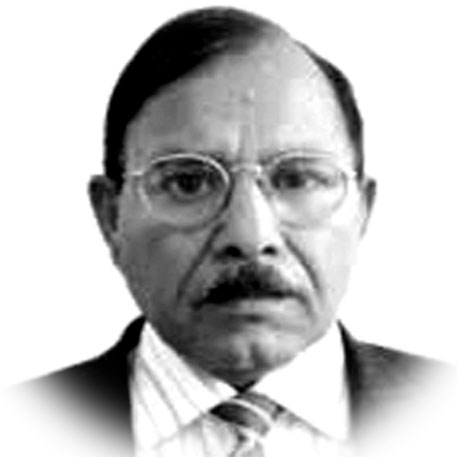Rediscovering the goal post
THE founder of Pakistan in his address to the constituent assembly said that the first duty of the state was to maintain law and order so that the life, property and religious beliefs of its subjects are fully protected.
He observed that bribery and corruption really were a poison and needed to be put down with an iron hand.
He also identified black-marketing, nepotism and jobbery as other ills afflicting the society which had to be eliminated.
In regards to putting Pakistan on the path of prosperity he said, “Now if we want to make this great State of Pakistan happy and prosperous, we should wholly and solely concentrate on the well-being of the people, and especially of the masses and the poor.
If you will work in co-operation, forgetting the past, burying the hatchet, you are bound to succeed.
If you change your past and work together in a spirit that every one of you, no matter to what community he belongs, no matter what relations he had with you in the past, no matter what is his colour, caste or creed, is first, second and last a citizen of this State with equal rights, privileges, and obligations, there will be no end to the progress you will make.”
It is regrettable to note that after more than seven decades of independence, we as a nation, have failed to tread the path envisioned by the founder of Pakistan and implement the priorities outlined by him.
All the ills identified by him have made deep inroads into the social fibre and we have taken a detour from the path envisioned by him to put Pakistan on the road to prosperity.
The perpetuation of elitist culture in the country has not only hindered socio-economic development of the country but has given rise to fissiparous tendencies and host of social fault lines, marring national integration and unity. The detour from the vision of the architect of Pakistan has brought the country at cross-roads.
Our survival as a respectable, vibrant, and prosperous nation surely hinges on path-correction on priority basis by rediscovering the goal post identified by the founding father.
The phenomenal economic progress made by our great friend China owes to its focus on changing the economic profile of the poor. Alleviation of poverty is the biggest propeller of sustained economic growth.
No wonder then that Prime Minister Imran Khan, taking cue from China is determined to lift the masses out of abject poverty.
His vision to follow the model of the State of Medina in changing the fortunes of the poor not only conforms to the religious obligation of the state towards poor but also to the vision bequeathed by the Quaid. It is rightly said that islands of affluence cannot exist in the oceans of poverty.
Alleviation of poverty is also imperative for political stability of a country besides its continued sojourn on the path of economic prosperity.
The initiatives taken by PTI government under the umbrella of Ehsaas Programme are surely a step towards the right direction and reflect unswerving commitment and sincerity of the Prime Minister in changing the fate of millions groaning under the weight of poverty.
But the dilemma is that the honesty of only one man cannot achieve the noble objective of poverty alleviation and putting in place a system that plugs all the avenues of corruption and misuse of power to benefit the vested interests.
There are men on both sides of the isle who are beneficiary of the archaic colonial system of governance and have built fortunes thriving on the inbuilt-avenues of corruption in the system.
They have a vested interest in its perpetuation. The Prime Minister therefore will have to bring systemic changes to remove the obstacles in pursuing pro-masses policies.
First he will have to break the hold of the elitist classes on the political power. That can be done by switching over to the system of proportional representation.
This will also scuttle the ability of the anti-democratic forces to manipulate the make and break of the governments. Drastic changes in the system of dispensation of justice are also needed to be brought about.
He alone cannot do it. For changing the system he will need the cooperation of the parties whom he dubs corrupt, whether he likes it or not.
He will also need a corps of dedicated and ideologically motivated people in the party like the Communist Party of China to achieve his objectives of building Pakistan on the lines of the State of Medina.
He must also remember that development is always culture-bound. We will have to create a culture which is conducive to development and instrumental to promoting well-being of the masses.
While one can take inspiration from the philosophy and growth model of another country it cannot be implemented lock stock and barrel in Pakistan. We will have to evolve our own growth-model tuned to our own national ethos and culture.
It is really a daunted task in view of the permeating situation but given the will nothing is impossible.
Perhaps a beginning can be made through letting bygones be bygones to enlist the cooperation of the other political forces which undoubtedly have support among the masses as well.
Once the systemic changes are in place and the Prime Minister is able to re-organize his party with the inclusion of people from the middle and lower middle class infested with his vision, his task will become much easier.
— The writer is former Director General Ministry of Information and Broadcasting, based in Islamabad.







